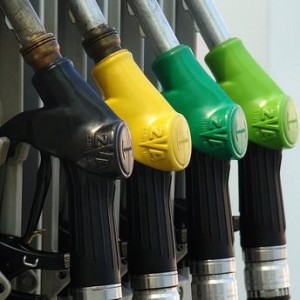 Iranians driving cars with engines of 1,800cc and bigger will stop benefiting from a rationing plan that supplies subsidized gasoline, Iran’s Oil Ministry news website reported, citing an energy official.
Iranians driving cars with engines of 1,800cc and bigger will stop benefiting from a rationing plan that supplies subsidized gasoline, Iran’s Oil Ministry news website reported, citing an energy official.
Iran will stop supplying fuel at a cheaper price to “all new locally produced as well as imported passenger cars” with engines of that size, Mohammad Royanian, head of Iran’s transportation and fuel management office, said in today’s Shana report. Iranians with cars pay 4,000 rials (33 cents) a liter for a monthly allowance of 60 liters and 7,000 rials a liter for larger volumes.
Royanian didn’t elaborate on the reason for the change and said it will come into effect from the Iranian month of Bahman, which begins on Jan. 20. Previously cars with engines as powerful as 2,000cc were included in the rationing plan, according to the report.
Officials of the Persian Gulf country have said it has become self-sufficient in gasoline production since domestic use decreased following a phase-out out of energy subsidies that began in December 2010. Iranian officials have said their country, which is grappling with international trade, financial and energy sanctions over its nuclear program, aims to become a “major” gasoline exporter.
Gasoline at a subsidized price will no longer be available in Iran’s border area, Oil Minister Rostam Qasemi was cited as saying in today’s Tehran-based Resalat newspaper. The fuel will instead be sold at the market price to curb smuggling, Qasemi was cited as saying.
Gasoil and gasoline smuggled from Iran was being sold at prices as much as eight times higher in neighboring countries, Deputy Oil Minister Alireza Zeighami said in November.
By Bloomberg
The Iran Project is not responsible for the content of quoted articles.

 QR code
QR code